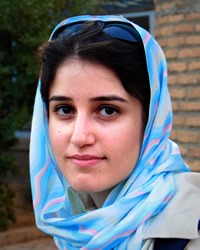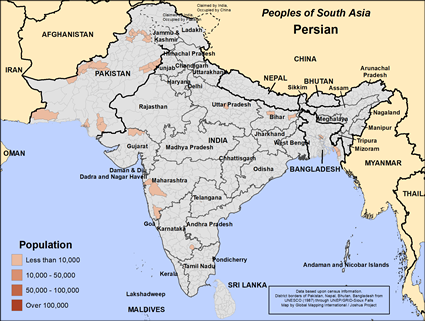By definition, Persians (also known as Iranians) are an ethnic group native to Iran. The Persian language, called Farsi, is part of the Indo-Iranian language family, and is the official language of Iran. Dari, the language of the elite in Afghanistan, is a dialect of modern Persian. Around 1000 B. C., Persian groups began to settle in the territory that is now Iran. Loosely associated Persian tribes became a more cohesive political unit under the Achaemenian dynasty. Their unity soon made them the dominant ethnic group in the region.
For 1,200 years, Persia maintained a culture that became increasingly more complex and rigid. This laid the foundation for a successful Arabian conquest in the seventh century A. D. Rigid thinking paved the way for Iran's Islamic revolution of 1979. From that time forward there have been major changes in Iran, causing thousands to flee.
Before that time there was a small Persian community in France, made up mostly of students. They started arriving as early as 1926, and they had good relationships with the French people.
The vast majority of Persians now live either in Iran or in one of the nearby Middle Eastern countries. There are also small Persian communities in many other nations around the world including France, where they are among the newer Muslim communities.
The founder of Iran's Revolutionary government, the Ayatollah Ruhollah Khomeini, was once a refugee in France. This is ironic for two reasons. First of all, his revolutionary government caused tens of thousands of his countrymen to flee Iran to become refugees in other parts of the world including France. Secondly, the Iranian government fears the Iranian Diaspora because they realize these people have wealth and power. The Iranian Diaspora would love to see democratic reforms in Iran that could jeopardize the power of the Islamic government.
Iranians in France tend to be well educated and prosperous. They have contributed to France as architects, journalists, athletes, singers, actors and businessmen. They have less contact with other Muslim communities, partly because others are Sunni and they are Shia Muslims. Secondly, their bad experience with Iran's forced religion has made them re-think religion.
Prior to the Arab invasions, the Persian religion was Zoroastrianism. This religion taught that there was an eternal struggle between the forces of good and evil. Shia Islam became the national religion of Iran in the sixteenth century, at which time the ulama (clergy) began playing an important role in both the social and political lives of the people.
Today, most Iranians are officially Shia Muslims of the Ithna Ashari branch. However, the Iranians who have migrated to the France are usually disillusioned with state-enforced spirituality, especially in light of the hypocrisy which they saw in the Iranian government. For this reason, most are either Shia Muslim in name only or they are secularized. Fortunately, being in a place where there is freedom of religion gives them a chance to hear and respond to the claims of Jesus Christ. The main obstacle is a lack of workers.
Iranians in France need to know there is hope—not in a religious institution, but in the only Savior, Jesus Christ. It will take loving and patient ambassadors for Christ to go to them. There is a need for more workers who will go with the love of Christ.
Pray for a Disciple Making Movement to flourish among Iranians all across Europe.
Ask the Lord to call and send out people who are willing to share the love of Christ with Iranians.
Pray that God will raise up faithful intercessors who will stand in the gap for the Persians.
Ask God to strengthen, encourage, and protect the formerly Muslim Iranians who have come to faith in Christ.
Scripture Prayers for the Persian in France.
https://en.wikipedia.org/wiki/Iranians_in_France
| Profile Source: Joshua Project |













